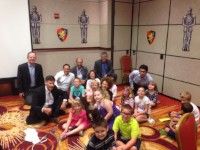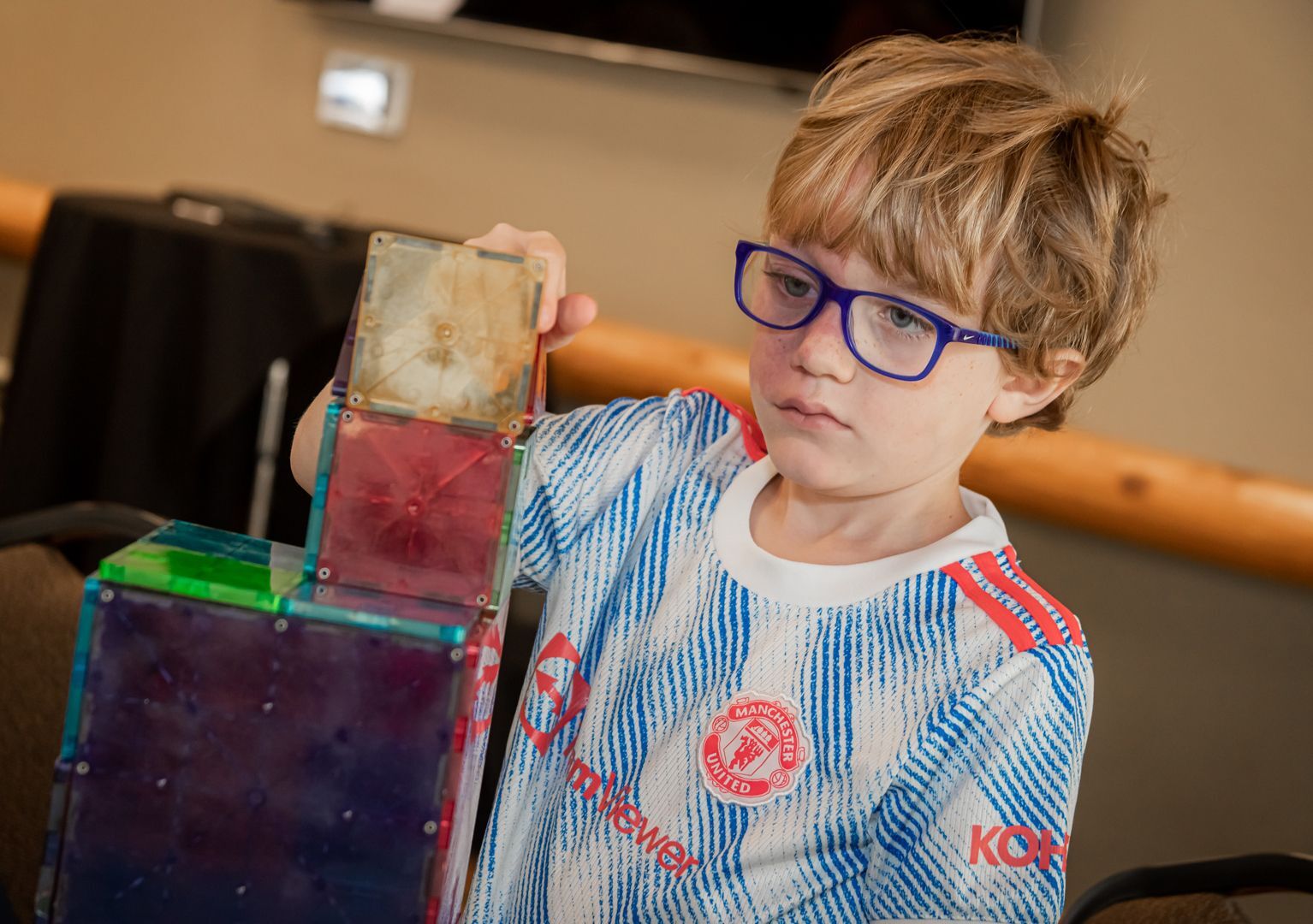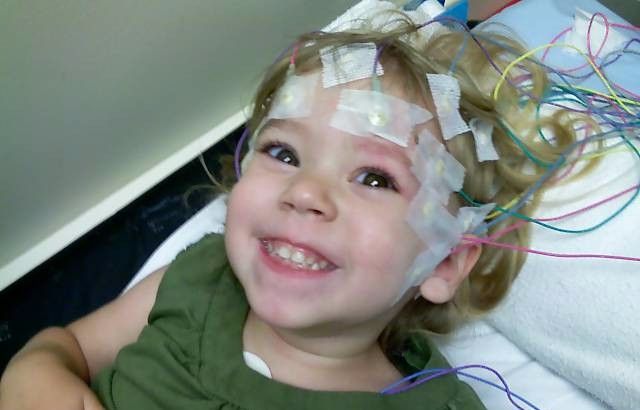
When The Sturge-Weber Foundation was founded in 1987, not much was known about Port Wine birthmarks, Sturge-Weber syndrome, and Klippel-Trenaunay. Today, we know the cause of SWS is the somatic mutation in GNAQ somatic mutation on chromosome 9q21.
The discovery of the GNAQ somatic mutation was made possible by the SWF laying the groundwork through years of advocacy on the Hill and the National Institutes of Health, exhibiting at academy conferences, spreading awareness and engaging researchers as well as using your critical donations to fund all that and research grants.
The research accomplishments and understanding of many aspects of SWS medical issues is glaucoma, seizures, calcification, growth hormone, migraines and more have been facilitated and in many cases funded by seed grants ($5000 range) and full basic and clinical grants ($30,000 per) or fellowships ($50,000 per). Yes, it does take money and we appreciate your support so much as well as the family with the newly diagnosed baby who is seeking answers.
The SWF and our dedicated clinicians and researchers have had short and long-term goals to increase the pace of our discovery. There is an ambitious road ahead of us all and together we can continue the momentum by collaborating with the best and brightest minds we can find in treatment and research for glaucoma, brain-related manifestations, and the biology of what makes and proliferates a capillary malformation (birthmark).
Thanks to your commitment we have been able to drive and fund research while also sponsoring scholarships at conferences around the country for families to have a safe place to gather and share stories and more. Your commitment has made possible one on one response to inquiries, and resources and to engage with other organizations that provide resources so we don't have to reinvent the wheel but can provide a comprehensive menu of answers to your questions and needs. The PEN Task Force is another key weapon in our arsenal as we work together to improve the quality of life and care with collective wisdom and resources.
By gathering and archiving clinical data on a registry, we can create a natural history of the disease which identifies emerging areas to study such as growth hormone abnormalities, angiogenesis, and more. By funding clinical and basic research tied to the registry data, there is more increased research and confirmed hypotheses.
We have an exciting opportunity to establish a Bio-repository where tissue samples can be banked and tied to clinical data which helps clinicians and basic researchers carry out studies. We need to conduct more genetic studies and it all takes time and people to carry it out. So, let's roll up our sleeves and make the coming years a new frontier of discovery!
What is Translational Research?
Translational research is when biological insights are gained through basic research and transformed into products that improve human health. Some of these products might include genetic tests, molecular biomarkers, and therapeutic treatment options. The Sturge-Weber Foundation is engaging in translational research with the SWS Project of the Brain Vascular Malformation Consortium (BVMC) by doing genetic studies and looking into potential biomarkers.
The majority of genetics research has focused on improving our understanding of the biology of genes and genomes. This research gene discovery and has laid the foundation for future research by understanding the underlying biological causes of disease.
Capitalizing on these advances in our knowledge of fundamental human biology will require an increase in translational research in the years to come. Improving human health outcomes, community involvement and advocacy leadership will be crucial for translational research to succeed. We need an army of volunteers to make these advances a reality in our lifetime. Please join the SWF when the call to action is sent to you...one person truly can make a difference!
SWS Registry
We need your help in taking a critical step toward learning more about our children and adults hopefully identifying effective treatments to help them experience life to the fullest. The online Sturge-Weber International Patient Registry has recently been launched for any individuals diagnosed with Sturge-Weber syndrome (SWS) or who have a port wine birthmark on the forehead and/or eye region.
Establishing the Registry addresses two critical needs. First, scientists studying SWS need accurate, first-hand information to understand how SWS affects people. Second, scientists will be able to find out if there are any SWS patients who might be a good match for their research studies. In either case, scientists will not be able to receive any identifying information about you or your child unless you give explicit consent for your child's identity to be released to a researcher.
We are requesting your participation now. The first step is to read "Understanding Your Participation" at www.swsregistry.org. Then, if you agree to participate in the Registry, you will need to indicate your consent at the bottom of the form and "register" so that you can obtain a login username and password. Once you create this login, you are ready to create a profile in the Registry.
Please let us know if you need a copy of any information you have already shared with the Foundation that can help you complete your registration and input data and records - we will be happy to provide this information to you.
Detailed information and a Q & A are provided at www.swsregistry.org
We are optimistic about the future benefits of creating this important online library of information about SWS which has grown out of 25 years of mutual information sharing by patients and their families.
-
 Sir William Osler
Sir William OslerTo wrest from nature the secrets which have perplexed philosophers in all ages, to track to their sources the causes of disease, to correlate the vast stores of knowledge, that they may be quickly available for the prevention and cure of disease-these are our ambitions.







